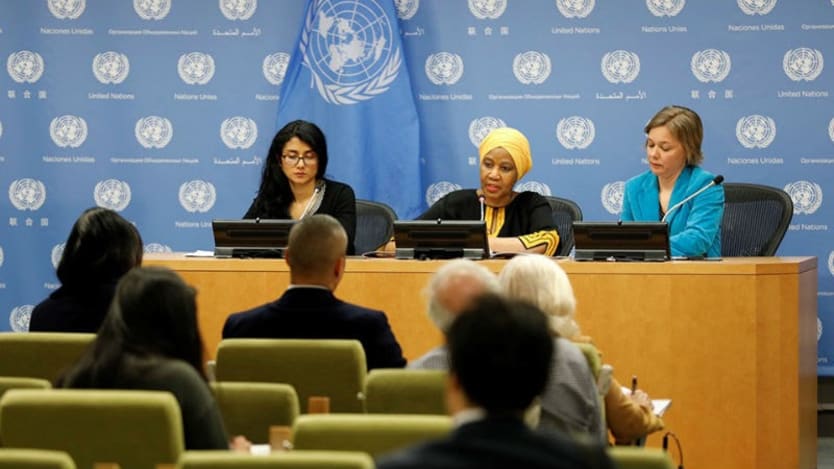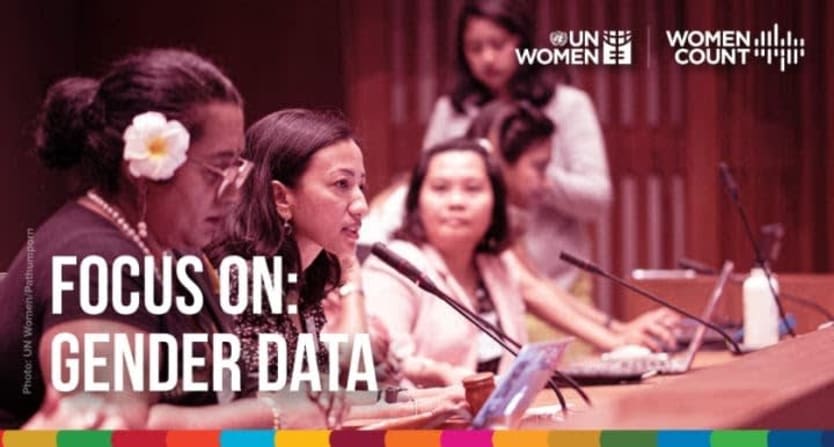
UNITED NATIONS — Twenty-five years after United Nations member states committed to achieving gender equality, progress remains incremental and insufficient to reach gender equality goals within the next decade, according to two new reports issued by the global gender partnership Equal Measures 2030 and UN Women.
“We have made some progress in the last 25 years, but [the report] also highlights the fact that progress has been made in those areas where there has been targeted investment by member states. This is, in particular, in health and education. Where we still have challenges in those areas, it is not out of lack of trying,” said UN Women Executive Director Phumzile Mlambo-Ngcuka in a media briefing on Thursday.
“What is most worrying is the context for accelerating progress is not nearly as strong as it was in 1995.”
— Silke Staab, research and data specialist, UN WomenThe separate findings were both released on Thursday, ahead of International Women’s Day on Sunday, and the planned launch of the annual Commission on the Status of Women forum. The forum, intended to offer a status update on Beijing progress, is postponed because of COVID-19. Member states will still adopt a political declaration affirming continued commitment to the Beijing platform on Monday.
“It is upsetting to see the CSW had to be massively shortened with the format, but it doesn’t change the fact that the year 2020 needs to be a turning point in the fight for gender equality, 25 years since the Beijing commitment,” said Alison Holder, director of Equal Measures 2030.
There have been some clear indicators of gender equality progress over the past several decades.
Focus on: Gender data
► Which globaldev employers are hiring gender experts?
► Pilot program tackles 'problematic' data requirements for gender-based violence
► How can data build a truer picture of the gender gap in food insecurity?
One hundred and thirty-one countries have enacted 274 legal and regulatory reforms in support of gender equality, and the global maternal mortality ratio dropped 38% between 2000 and 2017, according to UN Women.
But globally, women aged 25 to 34 are still 25% more likely than men to live in poverty. And only one out of four seats are held by women in national parliaments, according to UN Women. The number of women who want to avoid pregnancy but lack access to contraceptive care — more than 190 million — has remained unchanged since 2000, according to Silke Staab, research and data specialist at UN Women.
“What is most worrying is the context for accelerating progress is not nearly as strong as it was in 1995,” Staab said in the media briefing. She noted that global protests and the resurgence of the women’s movement offer some hope of political momentum.
Progress reversed within 14 countries on access to contraceptives from 2000 to 2018, according to Holder. And women in 10 countries, including Venezuela, Yemen, Mexico, Senegal, and Myanmar, reported feeling less safe in 2018 than they did in 2000.
Equal Measures studied five key gender equality targets in the report — including family planning, secondary education completion, ministerial roles, laws on workplace equality, and women’s perceptions of safety at night — and found that 129 countries wouldn't achieve any of them by 2030 if their current pace of progress continues.
Their findings also show that more than a third of countries have been moving slowly, or in the wrong direction, on at least four of these five targets.
Member states approved the Beijing Platform of Action in 1995, identifying 12 critical areas of necessary engagement, such as violence against women and women’s health. The platform’s blueprint for advancing gender equality is still used as a point of guidance today for gender equality programming and financing.
U.N. Chief António Guterres has called for a decade of action on meeting the SDGs, and for a new century that prioritizes gender equality.
Insufficient gender equality investments at the national government level is a major factor prohibiting continued progress, but does not always directly result in improved gender equality indicators, according to Holder.
“One of the factors that is worrying and is prohibiting progress would be a lack of consistent investment in gender equality. We have countries that have decided to invest a lot in their workplace equality laws, and that is a great area, but then we still see that only 10% of the most powerful government posts are held by women,” Holder said.
Not one country has demonstrated sustained progress on each of the priority issues, according to Holder.
“I think that women’s groups will tell you it is two steps forward, one step back kind of feeling,” Holder said. “The challenge is to show women’s rights is not something on a list you will get to when you have the time, but it is actually a crucial, enabling factor for all of the other changes we want to see.”
Devex, with support from our partner UN Women, is exploring how data is being used to inform policy and advocacy to advance gender equality. Gender data is crucial to make every woman and girl count. Visit the Focus on: Gender Data page for more. Disclaimer: The views in this article do not necessarily represent the views of UN Women.









